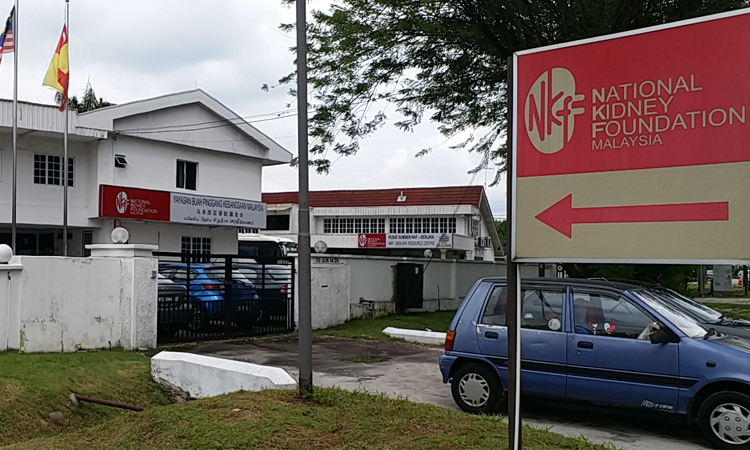- About
- Kidney Disease
- Public Education
- Treatment
- Patient Welfare
- Training
- Events
- SUPPORT US
- News
- Research


ENHANCING HEMODIALYSIS TREATMENT FOR KIDNEY PATIENTS IN MALAYSIA: A PROPOSAL FOR VALUE-BASED MEASUREMENT IMPLEMENTATION
Kidney disease continues to pose a significant burden on Malaysia’s healthcare system, with a rising number of end-stage renal failure (ESRF) patients requiring dialysis treatment. It is projected that there will be about 106,000 Malaysians with ESRD by 2040. In recent forecasts, the total treatment cost may come up to RM1.5 billion on dialysis by 2040. Echoing the call for reform in the recently presented Health White Paper, the National Kidney Foundation of Malaysia (NKF) proposes a comprehensive approach to improve the provision of hemodialysis treatment, standardize funding mechanisms, and enhance patient outcomes through the implementation of value-based measurement. This is in line with the key principles in the Health White Paper – Pillar 1: Transforming health service delivery, where the government strives to achieve more effective utilization of capacities and capabilities across the public and private sectors. While this paper focuses on the issues of funding for hemodialysis treatment, NKF is fully cognizant that the long-term approach to kidney failure is early detection and prevention.
Based on National Renal Registry, the government funds almost fifty percent of dialysis treatment (48.1%) followed by SOCSO (23.2%), Zakat/Baitulmal (12.2%), and others (out of pocket, NGO, insurance, employer-subsidized). The availability of funding agencies and the public-private partnership scheme have been instrumental in ensuring patients receive the life-saving dialysis treatment they require, thereby alleviating their suffering and improving their quality of life. The government’s commitment to addressing the needs of kidney patients and its proactive approach to leveraging private resources for the patients’ benefit is truly commendable. NKF is grateful for this invaluable partnership, which has undoubtedly made a significant impact on the lives of countless individuals affected by kidney disease.
Nonetheless, the existing funding sources and mechanisms for hemodialysis treatment in Malaysia exhibit fragmentation, resulting in disparities in service bundles and subsidy values among different funding agencies. This lack of consistency and incomplete care leads to complications, higher costs, reduced productivity, and a diminished quality of life for patients.
To address these challenges and ensure high-quality treatment for kidney patients, the NKF proposes the following recommendations:
Standardize Treatment Bundle
To ensure comprehensive and consistent care, all funding agencies should provide subsidies for the complete range of treatments and services required by dialysis patients. This includes dialysis services, vascular access for hemodialysis treatment, erythropoietin stimulating agents (ESAs) and parenteral iron, laboratory tests, basic medicine, and specialist consultations. By standardizing subsidy rates for a bundled package, patients will receive the necessary treatments without financial barriers, leading to improved outcomes and a higher rate of patients returning to the workforce.
Implement Value-Based Measurement
To measure the quality of care provided by private hemodialysis centres, a comprehensive framework for value-based measurement should be developed. This approach involves continuous monitoring of dialysis centres key performance parameters, such as dialysis adequacy, target haemoglobin levels, bone metabolism status, and water quality. In addition, by using metrics based on continuous quality improvement (CQI) metrics, namely the patient’s haemoglobin level, albumin level, dialysis adequacy, phosphate level, and transferrin saturation, the government and funding agencies can closely monitor the patient outcomes. Thus, ensuring that all subsidies can be allocated based on achieved values and patient outcomes. This ensures transparency, inclusivity, and improved cost-effectiveness.
Establish a Digital Monitoring Process
To optimize the use of resources and ensure the highest standards of care, an electronic performance monitoring (EPM) system should be implemented. Once the electronic medical records (EMR) or electronic lifetime health records (ELHR) are implemented per the Health White Paper, the monitoring system can leverage the EMR and ELHR to standardize treatment and patient care. It will enable comprehensive data collection, analysis, and reporting of treatment standards and patient outcomes across all hemodialysis centers. Furthermore, it will facilitate continuous monitoring of patient adherence and compliance with treatment and care standards, allowing for effective and efficient cost management and control.
Conclusion
The proposed measures seek to address the challenges faced in the provision of hemodialysis treatment for kidney patients in Malaysia. By standardizing treatment bundles, implementing value-based measurement, and establishing a digital monitoring process, the quality of care can be improved, funding efficiency can be enhanced, and better patient outcomes can be achieved.
The National Kidney Foundation urges the support and collaboration of the Ministry of Health and relevant stakeholders in implementing these recommendations. Together, we can ensure high-quality treatment for dialysis patients and alleviate the burden of kidney disease on both the healthcare system and the economy.
By adopting a value-based approach, Malaysia can lead the way in providing equitable and efficient dialysis treatment, setting a benchmark for quality care, and improving patient outcomes in the region.
